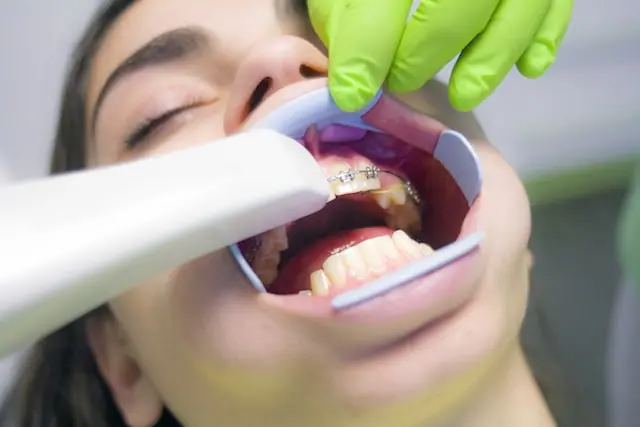Healthy teeth and gums are part and parcel of your child’s physical health and when they are well taken care of, the benefits of a healthy mouth extend way beyond that, including your child’s personal development such as his or her speech and self-confidence.
Does your child practice good oral care habits?
Such habits do not develop overnight. It takes consistent practice, lots of patience, and at times, a touch of creativity to cultivate it among children.
There will be days whereby your child might refuse the toothbrush or enjoy a little bit too many sweets. Unhealthy habits may also develop such as sucking on a bottle of milk to sleep and thumb sucking. As a parent, you may worry about cavities developing and your child’s dental development being compromised.
There is no doubt that cavities are a concern among children, including those with baby teeth. Did you know that 1 in 3 Nepalese children have a rotten tooth by the time they start primary school? To add on, having bad teeth from a young age increases the risk of crooked teeth when permanent teeth erupt.
This is why good oral care practices should be established among children.
What does good oral care among children mean?
Here’s a hint: It is more than just using a toothbrush and a tube of flavored toothpaste.
Good oral care habits are an overall approach. It includes limiting the intake of high sugar and salty food, brushing well, flossing, and getting your child’s teeth checked by a dentist every 6 months. That’s right, your child’s dental check-up schedule is the same as yours, and doesn’t that make things more convenient as you can make trips to the dentist together?
Regular dental visits for a child should start after his or her first tooth has erupted, which would be about 6 to 12 months of age.
Healthy oral care habits cultivated from a young age promote healthy dental practices that are usually maintained right through adulthood. To dive deeper into the benefits, you and your child will be reaping, here are 5 good reasons that will encourage you to instill healthy oral care habits among your children:
1) Dental disease prevention
Baby teeth are not permanent but that does not mean that they should not be well taken care of. Cavities developed in baby teeth can cause an infection that impacts the underlying permanent teeth. Healthy dental practices from a young help to reduce the development of cavities and ultimately contribute to the growth of healthy permanent teeth. A dentist will be able to monitor your child’s dental health and suggest preventive measures such as applying topical fluoride or sealant on your child’s teeth to protect them.
2) Cultivate a good habit
Regular dental visits help your child to take charge of their dental health. From a young age, your child will learn about the importance of good oral hygiene as well as get comfortable with paying visits to the dentist. The fear of the dentist, also known as dentophobia, prevents a large number of people from seeking professional dental help. The good news is, the development of dentophobia can be reduced significantly when an individual has built familiarity with the dentist.
3) Identify dental trauma
Falls, sports-related injuries, and accidents can cause injuries to the mouth, tooth, tongue, and jawbone. Such injuries are also known as dental trauma and the most common ones are broken and lost teeth. Some dental traumas such as those that are sports-related can be prevented with the use of a mouthguard. As a dentist journeys with your child through the years, he or she will be able to advise on dental trauma prevention tips and the use of a customized mouth guard to protect your child’s mouth if needed.
4) Help with poor habits
Common poor oral habits among children such as sleeping through the night with a bottle of milk (also known as Nursing Bottle Syndrome), thumb sucking after a child’s permanent teeth has erupted, lip sucking and chewing on one side of the mouth can cause adverse effects to a child’s oral development.
These habits can cause tooth decay, misaligned jaw, and palate, crooked teeth, an overbite. Plus, they can lead to other issues like poor pronunciation, lisp, and low self-confidence. Your child’s dentist will be able to identify early warning signs of these dental issues and suggest early intervention as needed.
5) Malocclusion management
Malocclusion or better known as crooked teeth increases the risk of tooth decay and gum diseases as certain areas of the mouth become difficult to clean. With regular dental visits, early malocclusion cues can be identified. If so, treatment options for early intervention such as clear aligners are available to help manage it.
In the long run, early intervention can help with reducing the need for dental surgery during adulthood, keep your child’s teeth healthy and help with his or her confidence level as your child will own a perfectly aligned smile. Our team of dental health experts at Divya Smile Dental Care Clinic welcomes patients of all ages, including young ones. Make your visit to the dentist a fun family affair by scheduling an appointment.

